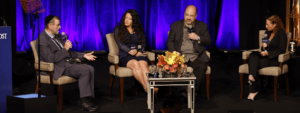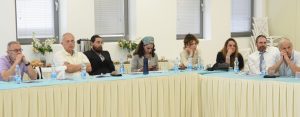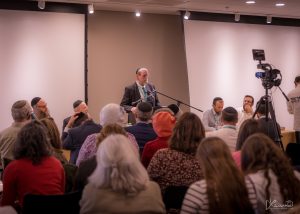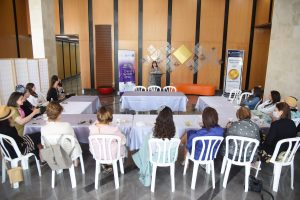In the wake of recent events: This is how we will cope with anxieties
The sequence of difficult events, starting with the deadly Covid-19 pandemic, continuing on to the Meron disaster and now, the missile attacks, has aroused fears and anxieties among children. Professor Israel Strous, Director of the Psychiatric Department of the Mental Health Division at Ma’ayanei Hayeshua, explains how to deal with the situation correctly.
The sequence of difficult events, starting with the deadly Covid-19 pandemic, continuing on to the Meron disaster and now, the missile attacks, and the increasingly uncertain state of security in the country, are likely to arouse fear and anxiety attacks among children. How do we deal with this?
Professor Israel Strous, a psychiatrist with extensive experience in the field, who is head of the Psychiatric Department of the Mental Health at Manei Hayeshua Medical Center, notes that first and foremost, it is important for us to know how to show the child that the feelings of pressure and anxiety are normal for all age groups and in every situation. “The anxiety we experience, regarding every threat that we face, or every threatening event, is natural and legitimate. Not only that, but if a child or an adult fails to display some degree of fear, we have cause to be concerned!”
“It is normal to feel pressured and tense when threatening events occur. This is a mechanism that the Almighty has immersed in us – when an individual is in danger, if, for example, a vehicle is on the road and is coming towards me, I feel threatened and run away from it, that’s the required reaction. When is there a problem? In the event that the extent of the response is not appropriate – if the individual is overly scared, or it is not at the right time and place.”
What is the correct way to approach the child after a traumatic event?
Professor Strous: “First and foremost, it is important to be close to the child and to hug him so that he has a feeling that he is not alone, that we are with him, that he is allowed to talk and express his anxiety, and that we will all go through it together. The parent should show the child confidence and control, but he is allowed to admit that he too is afraid but that this is something that can be dealt with, and that is fine. It is important not to ignore the fear of danger, not to lie to the child that it is nothing, and to promise him that there is no real danger, but to explain to him in simple and calm language, depending on the age of the child of what is happening and what we should do. And we should continually remind the child not to worry because the Almighty is watching over us.”
A minority of people who experience trauma as the result of an accident, war, or life-threatening event, suffer from longer-term reactions.
Professor Strous: “A person who has been through a difficult event whether himself or as someone providing help, or who witnessed or heard about it, is affected by it. Beyond the immediate feelings that are, as mentioned, legitimate and normal, he may later develop post-trauma syndrome. The definition of post-trauma is if the disorder is developed following more than a month after exposure to the traumatic event.”
How do we identify the symptoms of post-trauma?
Professor Strous: “The most prominent clinical symptoms include nightmares (feeling as if the event is recurring), avoidance of event-related things (like returning to the place, listening to the news), mood swings (bad mood, guilt feelings) and physiological awakenings, such as in an anxiety attack. In most cases, treatment through talking to the patient is enough to provide him with the tools for coping. If necessary, medication can be used.”
Professor Strous, who has an international reputation in the field, points to the uniqueness of the Center for Mental Health in the Mayanei Hayeshua Medical Center, which is the only psychiatric hospital in the world geared specifically to observant patients. “In order to provide proper and appropriate treatment, one must understand the world of the ultra-Orthodox Jew, where he comes from, and what his culture is all about.”








